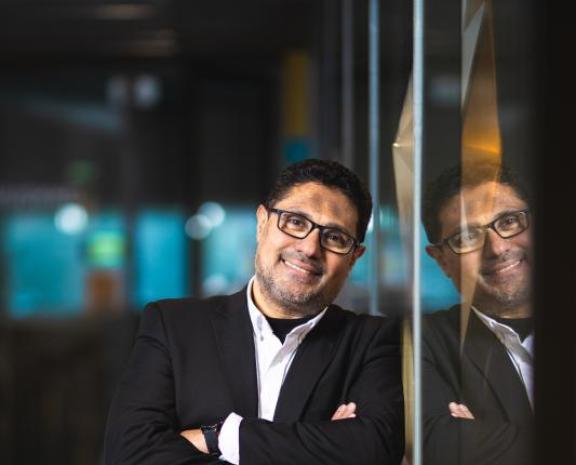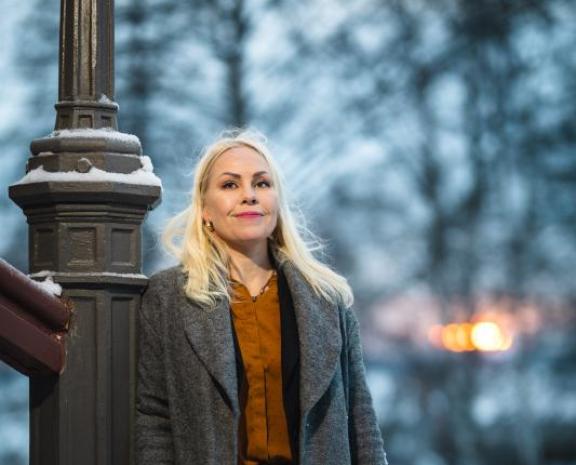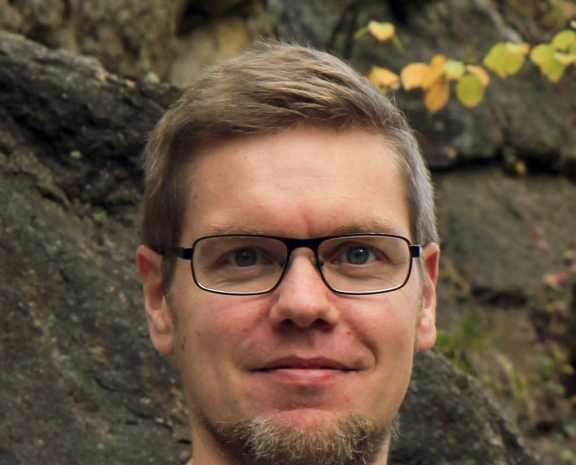
Associate Professor of Finance, Klaus Grobys wants consumers to be more critical of new blockchain-based applications and society to investigate the risks associated with new technologies before they are introduced. Klaus is currently researching cyberattacks on the cryptocurrency Bitcoin. He is passionate about teaching and research and believes in collaboration where people complement each other.
What are you researching right now?
I am currently exploring the risks and opportunities associated with blockchain-based financial applications, such as cryptocurrencies and Initial Coin Offering (ICO) crowdfunding models. Blockchain technology enables, for example, decentralised digital currencies, electronic asset registers, voting systems and inter-device payments.
ICO is the English term for blockchain-based digital crowdfunding which focuses on cryptocurrencies as a source of capital for growth companies. In this form of financing, a certain amount of crowdfunded currency is issued for investors in the form of tokens. I believe that the general public is interested in cryptocurrencies and crowdfunding models based on blockchain technology.
Why is blockchain technology important to study?
Blockchain technology is already visible in funding. My research teaches people about the other side of the virtual world that they often do not think about. Application developers usually want the user's time and money, but the user rarely thinks about this aspect.
What inspired you to do research?
From early childhood on my grandma told me that mathematics is important and I paid quite some attention to it. Later, I noticed that I enjoy working with numbers and drawing conclusions from statistics. I like the clear results that the statistical approach provides.
Which research finding would you highlight at the moment?
I am currently researching cyber-attacks on the crypto currency Bitcoin. In the future, cyberattacks will be more frequent and widespread, so it is important to understand the risks involved. In fact, 10% of Bitcoin's total reserves have already been stolen. This is a very large amount of money when we consider the market value of Bitcoin in 2021 which peaked at over 60 000 dollars, or around 52 000 euros. However, the price of Bitcoin has always been volatile. Over the years, we have seen rocketing rises and falls.
We collected around 50 cyberattacks and estimated the underlying distribution. The study showed that the underlying distribution of Bitcoin thefts is governed by a fractal process. Mathematically, we could show that the distribution has no mean, which implies that the risk would be unlimited. However, the supply of Bitcoin is finite, so we use Extreme-Value-Theory (EVT), one of the most widely used approaches to estimate risk, as a tool in this study. The risk always depends on the current market capitalisation of Bitcoin. We have found that the risk is significantly higher than the plain sample average, so the data does not always tell the whole story at least not in the presence of fractality.
What is your advice to society?
I think it is important to assess the potential risks of a new technology before it is introduced. New does not always automatically mean better. For example, think about Teflon, which is widely used for frying pans and was considered a miracle when it was first introduced. The material was later found to be extremely harmful to the environment and to cause cancer. The company that manufactured Teflon was DuPoint which ran into serious financial difficulties after the revelation.
How has the job of a researcher changed?
Working in academia has changed a lot over the years. In the past, most researchers were driven by a genuine interest and passion for their field. They really wanted to make the world understandable.
Nowadays, in academic circles around the world, you also find researchers who see their work as nothing more than a job among others. There are even researchers who do not want to create something new, but publish around the same results or accumulate titles and power. This happens in other parts of society too. Fortunately, many approach their work with a genuine passion and develop new research.
Career progression in academia should not be based on a good-brother network or on who has published the most academic papers. I am happy that our rector Jari Kuusisto decided to adopt the DORA Declaration which means that the University of Vaasa emphasises diverse evaluation of research. I feel that this is a fundamental first step.
Is your work social: do you meet lot of people? Does your work involve travelling?
I often write publications myself, but I also ask colleagues for help, so it's partly a team effort. My research findings of empirical and theoretical studies related to financial mathematics are published in popular academic journals, such as Quantitative Finance. Single-authored publications are very rare in Finland and I think I am the only one who managed to publish single-authored studies in this finance outlet.
I want to surround myself with qualified colleagues who complement my own skills and who get something out of my skills. I have great colleagues, such as an American who knows how to write the best research papers and a Finn who knows the latest econometric methods.
We get and share feedback at conferences. I also meet interesting people there. Covid-19 has taught me that conferences can be held via video call. It saves time and money because we no longer have to fly from one place to another.
What is your job like and how do you organise your working hours?
I feel that my job involves several different playing fields in which I work. One is teaching, which I really enjoy. I think it is important to pass on knowledge to new generations. Another one is research. I also enjoy doing research, because I always learn something new. I think the third field is media visibility. Taxpayers pay for my work, so I think it is important that they know what universities are spending their money on. That's why I want to do my part in sharing the results of research with the public.
Where do you get the strength and well-being to work?
Well, I recently became a father. Needless to say, just watching my daughter gives me all the strength needed to deal with anything. Otherwise, I like exercising in my free time to compensate for sitting. I lift weights, power walk and do martial arts. It is very important for my health to exercise my strength, endurance and reflexes. Research has shown that humans are not designed to sit in front of a screen 24/7. The brain is an organ that needs nourishment and oxygen just like any other organ.
Facts
Klaus Grobys
- Assignment: Associate Professor of Finance (tenure track) in the School of Accounting and Finance
- Education: Adjunct Professor of Economics (Docent), University of Jyväskylä, 2019.
- Career: Since 2012, working at the University of Vaasa, tenure-track employment since 2020. Works also in InnoLab.
- Research projects: Powered by Blockchain (funded by the European Social Found ESF) and Business Renewal using Digital Finance and Blockchain (funded by the Foundation for Economic Education)


